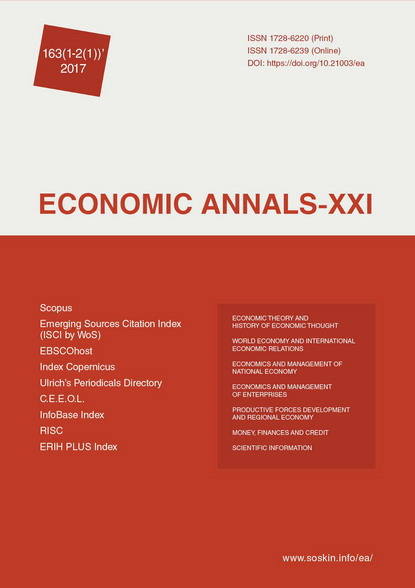Comparative analysis of some EU member states and EU associated countries to identify the phenomenon of business development in post-socialist countries
Comparative analysis of some EU member states and EU associated countries to identify the phenomenon of business development in post-socialist countries
Author(s): Alla Ivashchenko, Nataliya OrlovaSubject(s): Economy, National Economy, Business Economy / Management, Post-Communist Transformation, EU-Approach / EU-Accession / EU-Development
Published by: Institute of Society Transformation
Keywords: Business Development; Economic Conditions; Rating Methodology; Country Ranking; Post-socialist Country;
Summary/Abstract: The authors of the article have analysed different conditions and the level of business development which exist in post-socialist countries by using international methodologies such as «Doing Business» and «BDO International Business Compass». The main aim of the article is to outline the main features of every economy analysed by different criteria in order to identify the level of business development and its constraints in the period of 2012-2016 in countries such as the Czech Republic, Poland, Latvia, Lithuania, the Slovak Republic, Hungary, Estonia, Bulgaria, Moldova, Georgia and Ukraine. The presented analysis proves that some countries hold the leading positions in performing business (Estonia, Georgia and the Czech Republic), whereas others do not have such favourable conditions (Moldova and Ukraine). The authors described some of the advantages of the mentioned methodologies, among which are big databases, different categories of parameters, possibilities to overview risks and market potential and opportunities to make relevant comparisons. The disadvantages include a lack of corruption level assessment methods and the availability of financial and loan instruments for business. It has been proved that it is reasonable to use international ratings to avoid information asymmetries and to assess economy by different aspects.
Journal: Економічний часопис - ХХІ
- Issue Year: 163/2017
- Issue No: 01+02
- Page Range: 22-25
- Page Count: 4
- Language: English

